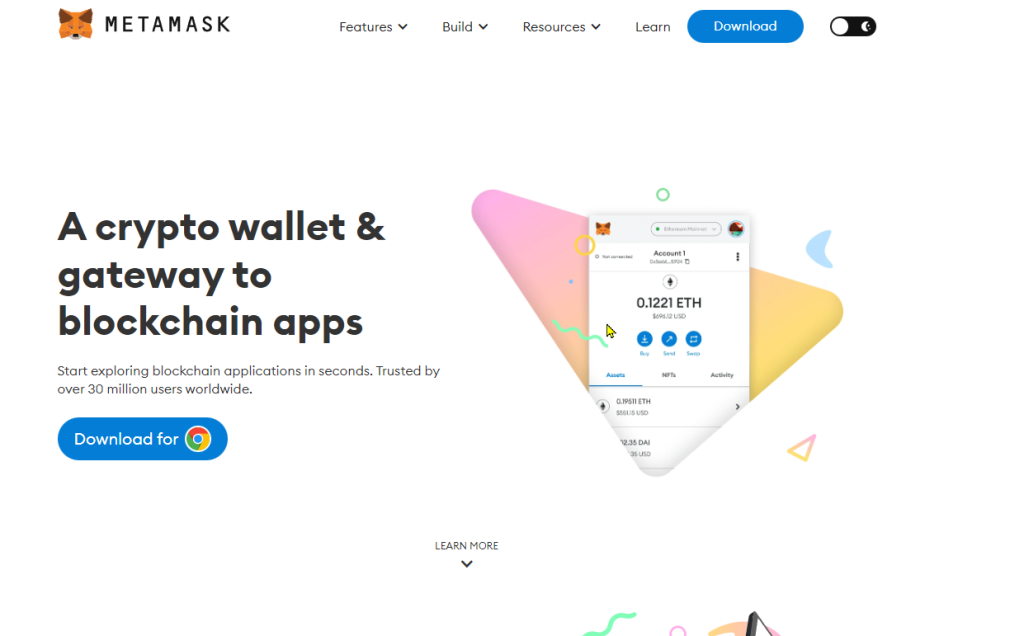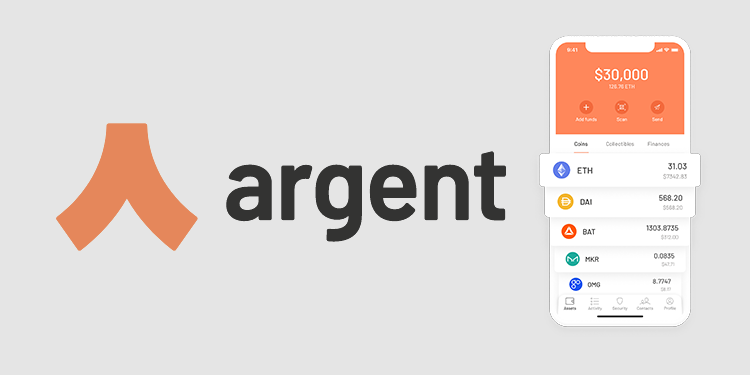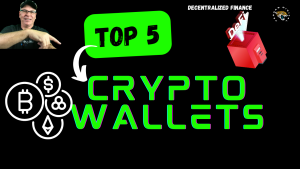Top 5 Cryptocurrency DeFi Wallets & How They Work
Decentralized Finance (DeFi) has revolutionized the financial landscape by enabling users to lend, borrow, trade, and earn interest on their crypto assets without relying on traditional financial intermediaries like banks. To engage with DeFi protocols, users need cryptocurrency wallets that allow them to store, manage, and interact with decentralized applications (dApps). These wallets are non-custodial, meaning users have full control over their private keys and funds. In this blog post, we’ll explore the top 5 cryptocurrency wallets used in DeFi and explain how they work.
1. MetaMask
Overview: MetaMask is arguably the most popular DeFi wallet, functioning as both a browser extension and a mobile app. It allows users to interact with the Ethereum blockchain and other Ethereum-compatible networks (e.g., Binance Smart Chain, Polygon). MetaMask is known for its ease of use, making it ideal for beginners and experienced users alike.
How It Works: MetaMask connects directly to decentralized applications (dApps) through a web browser or mobile device. When you install MetaMask, it creates a wallet with a seed phrase (also known as a recovery phrase), which acts as the master key to your wallet. Users should store this phrase securely because it’s the only way to recover the wallet if the device is lost.
The wallet allows you to:
- Store tokens: MetaMask supports Ethereum (ETH) and ERC-20 tokens (Ethereum-based tokens), as well as other blockchain assets if you add the respective network.
- Send and receive tokens: You can easily transfer tokens by entering the recipient’s address.
- Interact with dApps: MetaMask automatically connects with dApps like Uniswap, Aave, and Compound, allowing users to trade tokens, lend/borrow crypto, or stake assets without leaving the wallet.
- Swap tokens: MetaMask has a built-in token swap feature, allowing users to exchange tokens within the wallet itself.
Since MetaMask is non-custodial, users maintain full control of their private keys. This means that MetaMask does not have access to your funds, ensuring a high level of security, but also placing the responsibility for safeguarding the wallet solely on the user.
Why It’s Popular in DeFi: MetaMask’s widespread adoption in the Ethereum ecosystem, compatibility with multiple blockchains, and ease of use make it a go-to wallet for DeFi enthusiasts. Its ability to seamlessly connect with almost any dApp ensures that users can engage with DeFi protocols effortlessly.

2. Trust Wallet
Overview: Trust Wallet is a versatile, non-custodial mobile wallet that supports a wide range of cryptocurrencies across various blockchains. Initially designed to work with Ethereum and ERC-20 tokens, Trust Wallet has since expanded its compatibility to other blockchains, including Binance Smart Chain, Bitcoin, and many others.
How It Works: Trust Wallet operates much like MetaMask in that it generates a seed phrase upon account creation, which users must secure to recover their wallet. The wallet can be downloaded as a mobile app for both iOS and Android devices.
Features include:
- Multi-chain support: Trust Wallet supports over 1 million assets across more than 40 blockchains, including Ethereum, Binance Smart Chain, and more.
- dApp browser: It comes with a built-in Web3 browser that allows users to access decentralized applications directly from the wallet, enabling DeFi actions like token swaps, lending, and staking.
- Staking: Trust Wallet offers native staking options for several cryptocurrencies like BNB and Tezos, allowing users to earn rewards directly from the wallet.
- Token swaps: Users can swap tokens across different blockchains via its integration with decentralized exchanges (DEXs) like PancakeSwap and Uniswap.
Since Trust Wallet is non-custodial, only the user has access to their private keys, ensuring full control over their assets.
Why It’s Popular in DeFi: Trust Wallet’s support for multiple blockchains makes it ideal for users who participate in DeFi across different ecosystems. Its mobile-first approach appeals to users who want to manage their assets and interact with dApps on the go.
3. Ledger (with Ledger Live)
Overview: Ledger wallets are hardware wallets, considered to be one of the most secure ways to store cryptocurrency. Ledger devices, such as the Ledger Nano X and Ledger Nano S, keep private keys stored offline, making them less vulnerable to online hacks or phishing attacks. Ledger’s companion app, Ledger Live, allows users to interact with their funds, including DeFi activities.
How It Works: Ledger wallets are physical devices that generate and store the user’s private keys securely offline. To access your crypto, you must connect the Ledger device to a computer or mobile phone and authorize transactions manually.
With the Ledger Live app:
- Manage assets: Users can view their portfolio, send/receive crypto, and manage their assets directly through Ledger Live.
- dApp integration: While Ledger Live itself doesn’t directly connect to dApps, you can connect Ledger to MetaMask or other Web3 wallets, allowing you to interact with DeFi platforms while maintaining cold storage security.
- Staking and lending: Ledger Live offers built-in staking options for certain cryptocurrencies, and it supports lending through services like Compound and Aave.
Why It’s Popular in DeFi: Ledger is favored by DeFi users who prioritize security. By keeping private keys offline, Ledger significantly reduces the risk of hacks. Integrating Ledger with software wallets like MetaMask or directly with Ledger Live allows users to participate in DeFi while ensuring their assets remain in cold storage.

4. Coinbase Wallet
Overview: Coinbase Wallet is a non-custodial wallet developed by the Coinbase exchange, but it operates independently of the exchange platform. It supports Ethereum, ERC-20 tokens, and various dApps, allowing users to access DeFi services without requiring a Coinbase account.
How It Works: Coinbase Wallet is a mobile app available for iOS and Android. As a non-custodial wallet, it generates a recovery phrase during setup, and the private keys are stored locally on the user’s device. This means Coinbase does not have access to the user’s funds.
Key features include:
- Multi-asset support: Coinbase Wallet supports Ethereum, ERC-20 tokens, and tokens from other blockchains like Bitcoin and Litecoin.
- dApp browser: Users can interact with decentralized applications directly from the wallet, enabling them to participate in DeFi activities such as trading, staking, and lending.
- Decentralized trading: The wallet has a built-in decentralized exchange feature that allows users to trade tokens without leaving the app.
- NFT support: Coinbase Wallet allows users to store and manage their NFTs, a growing sector of decentralized finance.
Why It’s Popular in DeFi: Coinbase Wallet is user-friendly and integrates well with the Coinbase ecosystem, making it a great choice for users who want to bridge between centralized and decentralized services. Its seamless access to dApps and decentralized exchanges makes it ideal for DeFi participation.
5. Argent
Overview: Argent is a mobile-first Ethereum wallet designed with a focus on DeFi and simplicity. It is known for its user-friendly interface and security features like social recovery and multisig (multi-signature) options, making it one of the easiest wallets for beginners to use.
How It Works: Argent offers a unique, non-custodial wallet experience where users don’t need to worry about managing private keys directly. Instead, they use “guardians,” which can be trusted friends, family members, or devices, to recover their wallets in case they lose access.
Argent integrates directly with top DeFi protocols like:
- Aave for lending and borrowing.
- Compound for earning interest on crypto deposits.
- Uniswap for trading tokens.
- Yearn Finance for yield farming.
The wallet also provides:
- Low fees: Argent minimizes gas fees by using meta transactions and transaction batching.
- Security features: Social recovery and multi-sig options provide added security compared to traditional seed phrases.
Why It’s Popular in DeFi: Argent stands out for its beginner-friendly design, making it ideal for users new to DeFi. Its innovative security features and direct integration with leading DeFi protocols give users an easy and secure way to participate in decentralized finance.

Conclusion
In the fast-growing world of decentralized finance, having a reliable, secure, and easy-to-use wallet is essential. MetaMask, Trust Wallet, Ledger, Coinbase Wallet, and Argent each offer unique features that make them popular choices among DeFi users. Whether you prioritize security, ease of use, or multi-chain support, there’s a wallet out there to meet your needs.
As DeFi continues to evolve, these wallets will likely introduce new features to enhance user experience and security, further solidifying their roles as key tools in the decentralized finance ecosystem.
